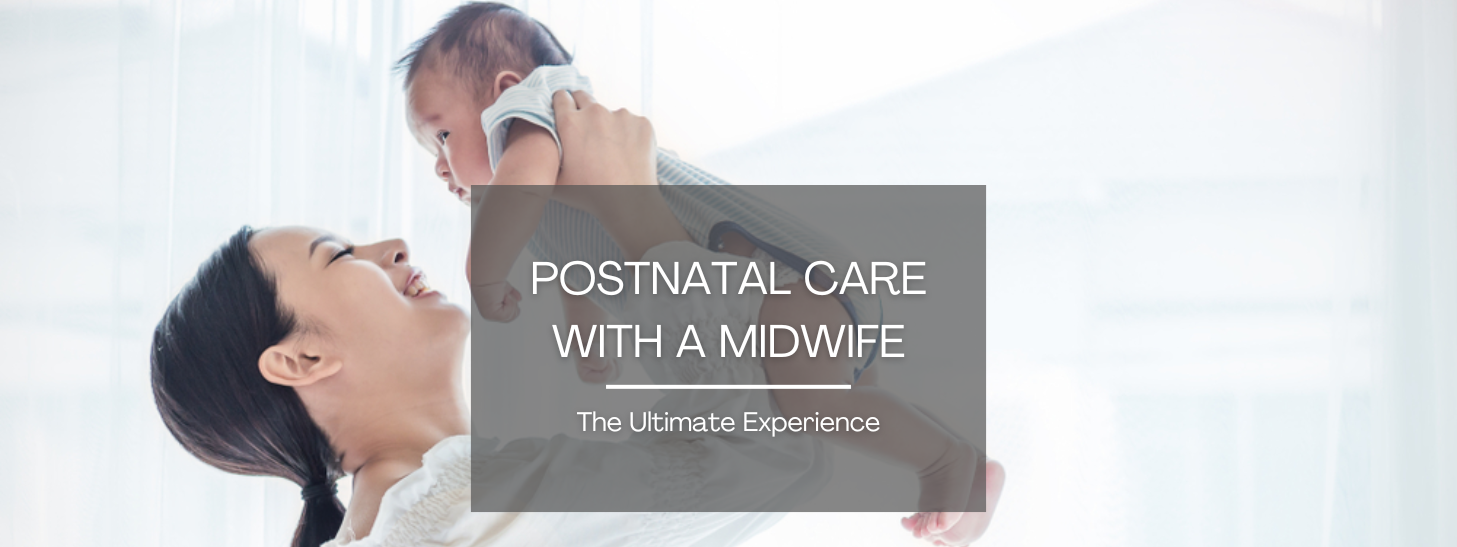Essential Postnatal Care with a Midwife: Supporting Your Transition to Parenthood

MENU
August 20, 2024
Postnatal care is such an important part of the childbirth journey, making sure both you and your baby are healthy and supported as you start this new chapter. Midwives are amazing at providing comprehensive postnatal care, from right after birth to the weeks that follow. Let’s talk about the key aspects of postnatal care with a midwife and why this personalized support is so beneficial.
Immediate Postpartum Care
The time right after birth is crucial for both you and your baby. Midwives provide hands-on care and support to help you both transition smoothly.
- Monitoring Recovery: After the birth, your midwife will keep an eye on how you’re recovering, checking for any issues like excessive bleeding or infection. They’ll also make sure your baby is doing well and adjusting to the world outside the womb.
- Breastfeeding Support: Midwives are pros at lactation support and can help you with that first breastfeeding session, ensuring you and your baby get off to a good start.
- Emotional Support: Those first hours and days after birth can be a whirlwind of emotions. Your midwife will be there to offer reassurance and encouragement, helping you navigate this new experience with confidence.
Home Visits
In the days and weeks following birth, midwives often conduct home visits to provide continued care and support. These visits are a vital part of postnatal care, ensuring ongoing health and well-being for both you and your baby.
- Health Check-Ups: During home visits, your midwife will conduct health check-ups for both you and your baby, monitoring recovery and development.
- Breastfeeding Assistance: If you run into any challenges with breastfeeding, your midwife can provide additional support and guidance to help you establish a successful breastfeeding routine.
- Addressing Concerns: Home visits are a great time to discuss any concerns or questions you might have, whether they’re about your physical recovery, baby care, or emotional well-being.
Supporting Emotional Well-Being
The postpartum period can bring a rollercoaster of emotions, from joy and excitement to anxiety and stress. Midwives are there to provide continuous emotional support to help you navigate these changes.
- Postpartum Depression Screening: Midwives are trained to recognize signs of postpartum depression and other mood disorders. They can connect you with resources and referrals for mental health support if needed.
- Encouragement and Reassurance: Your midwife will offer ongoing encouragement and reassurance, helping you build confidence in your new role as a parent.
Baby Care Guidance
Midwives provide invaluable guidance on caring for your newborn, helping you feel more confident and capable as a new parent.
- Feeding and Sleeping: Your midwife will offer advice on feeding schedules, sleep patterns, and establishing a routine that works for you and your baby.
- Newborn Health Monitoring: Regular check-ups with your midwife ensure that your baby is growing and developing well. They’ll monitor weight gain, jaundice, and other health indicators.
- Parental Education: Midwives provide education on various aspects of newborn care, from bathing and diapering to recognizing signs of illness.
Family Planning and Contraception
As part of postnatal care, midwives provide information and support on family planning and contraception. They help you make informed decisions about your reproductive health.
- Contraception Options: Your midwife can discuss various contraception options and help you choose the best method for your needs and preferences.
- Planning for the Future: Whether you’re considering having more children soon or planning to wait, your midwife can provide guidance and support to help you achieve your family planning goals.
Long-Term Postnatal Support
Postnatal care with a midwife extends beyond the immediate postpartum period. It offers long-term support as you adjust to life with your new baby.
- Follow-Up Visits: Your midwife will schedule follow-up visits to monitor your recovery and your baby’s development, ensuring both of you are thriving.
- Ongoing Advice and Support: Even after the initial postnatal period, your midwife remains a valuable resource for advice and support on parenting, health, and well-being.
Conclusion
Postnatal care with a midwife provides comprehensive support to ensure the health and well-being of both mother and baby. Midwives offer personalized care tailored to your needs, from immediate postpartum care and home visits to emotional support. They also provide guidance on baby care. With a midwife by your side, you can navigate the postpartum period with confidence. You’ll have expert support and guidance every step of the way.